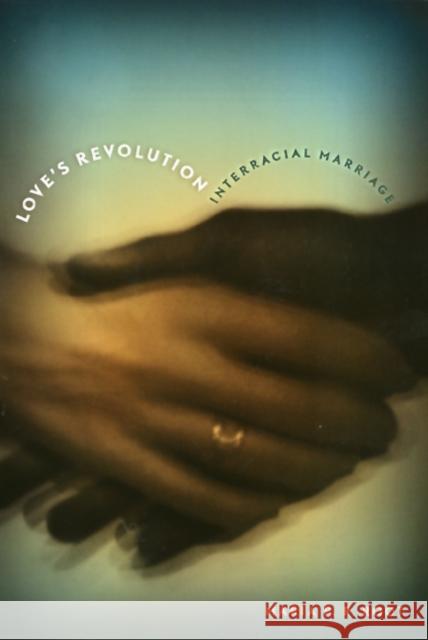Love's Revolution: Interracial Marriage » książka
Love's Revolution: Interracial Marriage
ISBN-13: 9781566398268 / Angielski / Miękka / 2001 / 240 str.
Love's Revolution: Interracial Marriage
ISBN-13: 9781566398268 / Angielski / Miękka / 2001 / 240 str.
(netto: 115,85 VAT: 5%)
Najniższa cena z 30 dni: 121,40
ok. 22 dni roboczych.
Darmowa dostawa!
When the Baby Boom generation was in college, the last miscegenation laws were declared unconstitutional, but interracial romances retained an aura of taboo. Since 1960 the number of mixed race marriages has doubled every decade. Today, the trend toward intermarriage continues, and the growing presence of interracial couples in the media, on college campuses, in shopping malls and other public places, draws little notice.
Love's Revolution traces the social changes that account for the growth of intermarriage as well as the lingering prejudices and false beliefs that oppress racially mixed families. For this book, author Maria P.P. Root, a clinical psychologist, interviewed some 200 people from a wide spectrum of racial and ethnic backgrounds. Speaking out about their views and experiences, these partners, family members, and children of mixed race marriages confirm that the barriers are gradually eroding; but they also testify to the heartache caused by family opposition and disapproving strangers.
Root traces race prejudice to the various institutions that were structured to maintain white privilege, but the heart of the book is her analysis of what happens when people of different races decide to marry. Developing an analogy between families and types of businesses, she shows how both positive and negative reactions to such marriages are largely a matter of shared concepts of family rather than individual feelings about race. She probes into the identity issues that multiracial children confront and draws on her clinical experience to offer child-rearing recommendations for multiracial families. Root's "Bill of Rights for Racially Mixed People" is a document that at once empowersmultiracial people and educates those who ominously ask, What about the children?
Love's Revolution paints an optimistic but not idealized picture of contemporary relationships. The "Ten Truths about Interracial Marriage" that close the book acknowledge that mixed race couples experience the same stresses as everyone else in addition to those arising from other people's prejudice or curiosity. Their divorce rates are only slightly higher than those of single race couples, which suggests that their success or failure at marriage is not necessarily a racial issue. And that is a revolutionary idea!











